IT4Innovations is a research and development centre with strong international links, it is involved in all activities of EuroHPC Joint Undertaking and in a number of prestigious international organisations (PRACE, ETP4HPC, EUDAT, BDVA, EOSC).
IT4Innovations is currently a National Centre of Competence for HPC, a member of the MaX and Space Centres of Excellence and a partner in more than 10 other international projects of Horizon 2020, Horizon Europe or Digital Europe, coordinating the EXA4MIND project. It also collaborates on the European Space Agency (ESA) project called AIOPEN (Platform Extensions with AI Capabilities).
The implementation of national projects financially supported by the Ministry of Education, Youth and Sports, the Ministry of Industry and Trade, the Ministry of the Interior, the Grant Agency of the Czech Republic or the Technology Agency of the Czech Republic is also important. Some of the projects are carried out in the form of contract research with commercial entities.
TOP 5 IT4INnovations PROJEcTs

2023–2026
Project ID: LM2023054
Provider: Large Infrastructures for Research, Experimental Development and Innovation project
e-INFRA CZ is a unique e-infrastructure for research, development, and innovationin the Czech Republic, which represents a fully transparent environment providingcomplex capacities and resources for scientific data transfer, storage, and process-ing to all entities focused on research, development, and innovation across sectors.
It creates a communication, information, storage, and computing platform for re-search, development, and innovation both at the national and international levels. Italso provides an extensive and comprehensive portfolio of ICT services for conduct-ing modern research, development and innovation.
The main components of e-INFRA CZ include:
→ high-performance national communication infrastructure,
→ national grid and cloud infrastructure,
→ most powerful and state-of-the-art supercomputing systems in the Czech Republic,
→ high-capacity data storage facilities.
Other tools and services, such as access control to ICT resources, tools to supportremote cooperation, and tools to ensure secure communication and data protec-tion, are also an essential part and an added value of this infrastructure, contribut-ing to its efficient and diverse use.

EXA4MIND
EXtreme Analytics for MINing Data
2023–2025
Project ID: 101092944
EXA4MIND project will build an Extreme Data platform which brings together data storage systems and powerful computing infrastructures by implementing novel automated data management and effective data staging. The project is driven by four application cases from molecular dynamics, advanced driver assistance systems, smart agri-viticulture and health and social Big Data. The EXA4MIND proposes innovative solutions to complex everyday data-processing problems and addresses critical challenges like data analytics, Machine Learning and Artificial Intelligence at scale; effectively democratising access to and enabling connectivity across EU supercomputing centres.

EuroCC 2
National Competence Centres in the framework of EuroHPC Phase 2
2023–2025
Project ID: 101101903
The mission of EuroCC 2 is to continue the establishment of a network of National Competence Centres (NCC) in the most efficient way while continuing to address the differences in the maturity of HPC deployment in Europe. The main task of the overall activity is to support national centres in setting up their operational frameworks while accessing and making the most of the experience and expertise currently available at national and European levels. The main goal is to drive collaboration, and exchange of best practices and knowledge at the European level and to accelerate the improvement of national and thus European capabilities.

European Open Science Cloud Czech Republic
2023–2028
Project ID: CZ.02.01.01/00/22_004/0007682
The European Open Science Cloud (EOSC) is a European initiative focused on developing infrastructures supporting open science practices in research data management. It offers facilities for storing and sharing so-called FAIR research data – findable, accessible, interoperable, and reusable. The EOSC-CZ project is the implementation of the EOSC initiative in the Czech Republic, which aims to create a national node of this European initiative and promote good practice in research data management across scientific communities. Implementing National Data Infrastructures will create a common platform for sharing, managing, and accessing data and computing resources for research purposes. The NDI will support scientific and multidisciplinary research activities and include various scientific fields and disciplines.
More information here.
MAterials design at the eXascale
2023–2026
Project ID: 101093374
Materials simulations have become one of the most intensive and fast-growing domains for high-performance computing worldwide, with a recognized European leadership in developing and innovating the ecosystem of quantum simulation codes. MAX project will target these lighthouse codes to address the challenges and leverage the opportunities arising from future exascale and post-exascale architectures, and to offer powerful paths to discovery and innovation serving both scientific and industrial applications.
OTHER IT4INNOVATIONS PROJECTS

Software for Efficient and Energy-Aware Supercomputers
2025–2029
Grant agreement number: 101177590
The SEANERGYS project will develop a next-generation software solution to improve the energy-efficient operation of EuroHPC supercomputers. By enhancing the way energy is monitored, managed, and used in supercomputing, the project will help strengthen Europe’s commitment to sustainability. SEANERGYS focuses on four main objectives: reducing the energy consumed by real-world workloads, improving resource utilization, increasing overall system throughput, and optimizing response times, leading to greater research and development output per unit of consumed energy.
IT4Innovations will actively work on developing a set of artificial intelligence models (“model zoo”) designed to predict HPC cluster behavior using data from data center monitoring. IT4I will also create photorealistic visualizations of monitoring data, job schedules, and predicted future system states. In addition, IT4I will focus on dynamic resource management to improve resource utilization and energy efficiency, developing the MERIC software suite to measure energy consumption and optimize CPU and GPU settings.

Project ID: 09I02‑03‑V01‑00029
2025 – 2027
InnovAIte Slovakia seeks to build a dynamic and sustainable innovation ecosystem in the field of artificial intelligence (AI), effectively linking cutting-edge research with practical applications. The project emphasizes the development of AI solutions that are not only technologically advanced but also ethical, environmentally sustainable, and socially beneficial. The consortium brings together leading research centers, universities, and businesses from Slovakia, Germany, and the Czech Republic.
Key focus areas include the development of AI algorithms for improving building energy efficiency, enhancing traffic safety through video analytics, automating software development, driving digital transformation in the insurance sector, and validating functional prototypes.

EuroHPC Virtual Training Academy
2025–2029
Project ID: 101196394
The EVITA project will enhance education in high-performance computing and artificial intelligence in Europe. It will create a competency framework based on professional profiles and a skills tree, which will subsequently lead to the development of modules and courses. Quality training will be ensured through open calls with cascading funding, and an online educational platform will be developed with certifications and educational materials for students, as well as tools for trainers. EVITA aims to create a connected community of students, educators, and industry experts equipped with top-notch knowledge and skills in HPC.

LUMI AI Factory – Service Center
2025–2028
Project ID: 101234208
As AI technologies and methodologies continue to advance swiftly, Europe has been actively developing and strengthening the ecosystem of frameworks, environments, tools and services required to boost innovation. This comprehensive approach aims to harmonise AI strategies across the continent, addressing the technology’s challenges and opportunities while assessing its impact on public and private sectors and society at large. The LUMI AI Factory Service Center project is a part of the broader LUMI AI Factory ecosystem leveraging the current LUMI supercomputer but gearing up for the upcoming LUMI-AI system, and the related AI-optimised quantum experimental platform LUMI-IQ.

Digital Autonomy for RISC-V in Europe (Specific Grant Agreement 1)
2025–2028
Project ID: 101202459
The project aims to strengthen Europe's digital autonomy in the fields of High-Performance Computing (HPC) and Artificial Intelligence. Its goal is to develop products for European supercomputers intended for both research and industry. It leverages the open RISC-V architecture, chiplet technology, and open-source software to design three specialized chiplets for HPC and AI. These modules will be integrated into high-performance European systems. The project includes parallel hardware and software development and will create a technical roadmap for future European post-exascale supercomputers.

Optimization of low-speed characteristics & performance of aircraft
2/2025 – 6/2026
Project ID: 101163317
Companies specializing in custom aircraft manufacturing, BRM Aero and Airmobis, have formed a partnership with IT4Innovations to focus on the shape and configuration of aircraft flaps in order to achieve maximum aerodynamics. By leveraging advanced technologies such as artificial intelligence, digital modelling, neural networks, and supercomputer-accelerated simulations, they aim to develop a methodology that enables the creation of an optimized aircraft design in a fraction of the time and cost. This approach will also help reduce the aircraft's weight and material usage, increase cruising speed, and lower fuel consumption.

A Hybrid Generative AI-model for Resolving Molecular Structures integrating sequence and Cryo-Electron Microscopy data
1/2025 – 10/2025
Project ID: 101163317
The project aims to develop a novel open-source AI model by incorporating cryo-EM data into the OpenFold model architecture. This collaboration is designed to enhance prediction accuracy and confidence of generated 3D protein models. PUXANO’s structural biology capabilities will allow for rapid model validation and the generation of a unique proprietary service platform coupled to an open-source AI model for protein model prediction.

Digital Twin of Earth system for Cryosphere, Land surface and related interactions
2025–2028
Project ID: 101187992
TerraDT is a groundbreaking digital twin project designed to enhance our understanding of how glaciers, sea ice, vegetation, and aerosols influence the Earth’s climate. By delivering high-resolution climate impact assessments, it will provide concrete decision-making tools for local planning, such as helping determine optimal locations for shipping routes, parks, and other infrastructure. The project will leverage Europe's most advanced supercomputers to achieve unprecedented modelling accuracy.
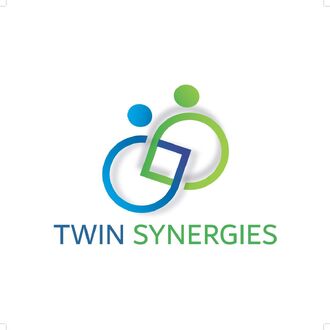
Empowering participation and accelerating synergies in Widening countries with a focus on Green & Digital Transition
2024–2026
Project ID: 101160135
There are significant differences in research and innovation (R&I) performance among EU member states, leading to varying participation levels in funding programs based on excellence. Low participation limits the ability of underperforming countries to improve their R&I systems. The TWIN SYNERGIES project aims to foster synergies at both operational and governance levels, focusing on human resources development and internationalisation. It will consider Smart Specialization Strategies, which are crucial for achieving smart growth at the EU level. TWIN SYNERGIES will develop tailored, transferable activities for capacity building, internationalisation, collaboration, and technology uptake, particularly in relation to the Green and Digital transitions. The project will also emphasise improving cooperation and communication among key stakeholders, including EU and national authorities.

Center for Artificial Intelligence and Quantum Computing in System Brain Research
2024 – 2030
Project ID: 101136607
CLARA, the Center for Artificial Intelligence and Quantum Computing in System Brain Research, represents the interdisciplinary center of excellence focused on the next generation of artificial intelligence/machine learning applications and quantum-centric supercomputing tools to push the frontier of neurodegeneration research, particularly Alzheimer's disease. The CoE seeks deep field knowledge and processing of large-scale biological and clinical data that will enrich the collective understanding of these emerging technologies and solve real-world challenges, thus accelerating innovations and the future of computing for the benefit of society.

A European Network of TRUSTed research environments
2024–2027
Project ID: 101131056
The project will create a European network of trusted research environments for sensitive data and drive interoperability through the joint development of a common blueprint for federated data access and analysis. EOSC-ENTRUST connects national centres, research organisations and scientific communities to implement, validate and promote their capabilities using shared standards and common language. The project has identified four driver projects covering genomics, clinical trials, social science, and public-private partnerships to benchmark capabilities, inform blueprint design and demonstrate secure data analysis using federated workflows.

Czech National Quantum Communication Infrastructure
2023–2026
Project ID: 101091684
The CZQCI is a project to build a test version of a national quantum communication backbone infrastructure that will be used to validate relevant technologies and their integration into existing telecommunication networks, as well as to disseminate the knowledge needed for its use in the field of secure communication. The project aims to create a test quantum backbone infrastructure connecting Prague, Brno and Ostrava. It will offer education in the field of quantum security of data transmission and possibility to test real quantum communication through a test connection to the test backbone network for interested partners from public administration and industry.
https://www.cybersecurityhub.cz/en/strategic-projects/czqci

Performance Optimisation and Productivity 3
2024–2026
Project ID: 101143931
The key element to ensure efficient use of HPC infrastructures is to optimise the performance and efficiency of the applications. The Centre of Excellence on performance optimisation and productivity (CoE POP) was initiated in October 2015 with the fundamental purpose of assisting a broad community of HPC application developers and users in science and industry domains. The current proposal of the POP3 project is articulated in 3 pillars: services, users and codesign. POP services mainly focus on performance assessments to evaluate code performance and scale, identifying the main sources of inefficiency or improving energy efficiency. POP3 will focus on the European flagship HPC applications for other CoEs. However, it will still provide services to prescribers and SMEs to promote an efficient usage of computing resources.

High-level specialized application support service in High-Performance Computing (HPC)
2024–2028
Project ID: 101139786
EuroHPC Joint Undertaking is deploying a European-wide High-performance Computing infrastructure comprising a number of supercomputers from small petascale to exascale systems. Nowadays, the Hosting Entities offer support services to users, mainly providing help desk support for day-to-day operational issues and problems. The EPICURE project aims to operate a high-performance computing application support service for European scientists and researchers. Application Support Teams will provide services aimed at application porting, optimisation and execution of key applications and organisation of specialised training events and workshops in the context of high-profile international HPC events. Finally, developing a single point of contact will allow European HPC users to retrieve information on the systems, their architectures, access mechanisms, and available support services.
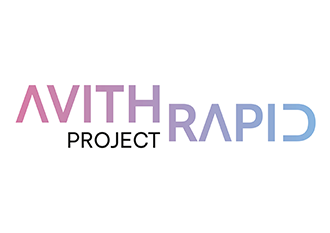
Antiviral Therapeutics for Rapid Response Against Pandemic Infectious Diseases
2024–2028
Project ID: 101137192
Project AVITHRAPID aims to support the search for novel broad-spectrum antiviral compounds by advancing multiple approaches. Building on a pre-existing set of bioactive small molecules, which are at least at the validated hit level, AVITHRAPID strives to develop pre-clinical candidates targeting several viruses. This will be achieved by combining the relevant expertise for pre-clinical drug discovery, including molecular modelling, biochemical and cell-based assays, X-ray crystallography, medicinal chemistry, biophysical binding studies, ADMETox profiling, in vitro and in vivo, as well as animal disease models. As a consequence of the activities in the AVITHRAPID project, an early-stage drug discovery pipeline will be established that can be used to rapidly identify and develop novel antiviral compounds against emerging diseases.

Foreseeing the next generation of Aircraft: hybrid approach using Lattice-boltzmann, experiments and modelling to optimize fluid/struCture interactiONs
2024–2027
Project ID: 101138305
Aviation transport is the second biggest source of greenhouse gas emissions after road transport. One of the main levers to decrease CO2 emissions is to reduce the airframe structural weight. The growing amount of air traffic means that many EU citizens are still exposed to high noise levels. FALCON’s ambition is to enhance the design capabilities of the European aircraft sector, focusing on fluid-structure interaction (FSI) phenomena to improve the aerodynamic performances of aircraft. Specifically, FALCON aims to develop high-performance, predictive and multi-disciplinary tools for FSI in aeronautics in order to reduce the aeroacoustics and aeroelastic instabilities using multi-fidelity optimisation. To achieve its ambitious goal, FALCON assembles a unique interdisciplinary environment of fifteen public and private institutions and their affiliated entities from renowned research institutions to SMEs and suppliers.
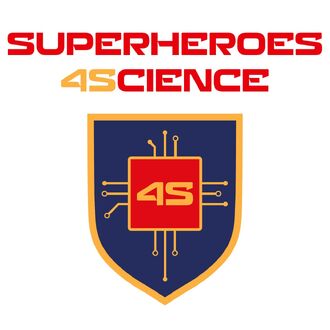
2023–2025
Project ID: 22320170
Provider: The International Visegrad Fund
Superheroes 4 Science project plans to introduce the young generation to High-performance computing (HPC), a critical field of technology that utilises supercomputers to solve complex problems and perform computationally intensive tasks. The project aims to create various interactive educational materials on HPC and its two related emerging fields: Artificial Intelligence and Quantum Computing. The project is co-financed by the Governments of Czechia, Hungary, Poland and Slovakia through Visegrad Grants from the International Visegrad Fund.

Integration of biodiversity monitoring data into the Digital Twin Ocean
2023–2027
Project ID: 101112823
The primary objective of the DTO-BioFlow project is to awaken sleeping biodiversity data, enabling a smooth integration of both existing and new data into the Digital Twin Ocean. The project aims to provide innovative and sustainable solutions for making previously unavailable or hard-to-access biodiversity data accessible. Additionally, it will pilot cost-effective and scalable technologies for monitoring species on a large scale. DTO BioFlow wants to improve the European biodiversity data environment by streamlining the flow of FAIR data from various sources into digital twin repositories, optimising and enhancing the functionality and societal value of DTO.
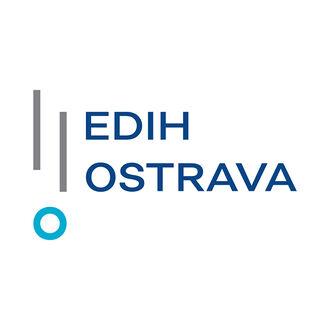
2023–2025
Project ID: 101083551
The EDIH Ostrava is part of a European network of digital innovation hubs that support the deployment and use of digital technologies, primarily in small and medium-sized companies, to support their competitiveness. The added value of the existence of the network of European digital innovation hubs lies in the sharing of experience and mutual cooperation in the implementation of specific activities as well as in mediating and linking demand (client needs) with supply (hub expertise and technology) across the EU, taking into account the different specialisations of the individual European hubs.

MAterials design at the eXascale
2023–2026
Project ID 101093374
Materials simulations have become one of the most intensive and fast-growing domains for high-performance computing worldwide, with a recognized European leadership in developing and innovating the ecosystem of quantum simulation codes. MAX project will target these lighthouse codes to address the challenges and leverage the opportunities arising from future exascale and post-exascale architectures, and to offer powerful paths to discovery and innovation serving both scientific and industrial applications.

Scalable Parallel and distributed Astrophysical Codes for Exascale
2023–2026
Project ID: 101093441
In Astrophysics and Cosmology, High-Performance Computing-based numerical simulations are outstanding instruments for scientific discovery. They represent essential tools and theoretical laboratories able to understand physical processes behind the observed sky for which the effective exploitation of exascale computing capabilities is essential. Exascale systems have an unprecedented architectural complexity with a significant impact on simulation codes. The SPACE Centre of Excellence aims to extensively re-engineer target codes to engage with new computational solutions and adopt innovative programming paradigms, software solutions, and HPC libraries.

EXtreme Analytics for MINing Data
2023–2025
Project ID: 101092944
EXA4MIND project will build an Extreme Data platform which brings together data storage systems and powerful computing infrastructures by implementing novel automated data management and effective data staging. The project is driven by four application cases from molecular dynamics, advanced driver assistance systems, smart agri-viticulture and health and social Big Data. The EXA4MIND proposes innovative solutions to complex everyday data-processing problems and addresses critical challenges like data analytics, Machine Learning and Artificial Intelligence at scale; effectively democratising access to and enabling connectivity across EU supercomputing centres.
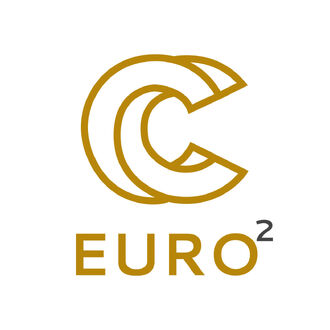
National Competence Centres in the framework of EuroHPC / Phase 2
2023–2025
Project ID: 101101903
The mission of EuroCC 2 is to continue the establishment of a network of National Competence Centres (NCC) in the most efficient way while continuing to address the differences in the maturity of HPC deployment in Europe. The main task of the overall activity is to support national centres in setting up their operational frameworks while accessing and making the most of the experience and expertise currently available at national and European levels. The main goal is to drive collaboration and exchange of best practices and knowledge at the European level and to accelerate the improvement of national and, thus, European capabilities.

European Pilot for Exascale
2022–2025
Project ID: 101033975 (H2020-JTI-EuroHPC-2020-01, RIA)
The EUPEX consortium aims to design, build, and validate the first EU platform for HPC, covering end-to-end the spectrum of required technologies with European assets: from the architecture, processor, system software, and development tools to the applications. The EUPEX prototype will be designed to be open, scalable, and flexible, including the modular OpenSequana-compliant platform and the corresponding HPC software ecosystem for the Modular Supercomputing Architecture. Scientifically, EUPEX is a vehicle to prepare HPC, AI, and Big Data processing communities for upcoming European Exascale systems and technologies.

Piloting a Cooperative Open Web Search Infrastructure to Support Europe’s Digital Sovereignty
2022–2025
Project ID: 101070014 (HORIZON-CL4-2021-HUMAN-01, RIA)
In the OpenWebSearch.EU project, 14 renowned European research and supercomputing centres joined forces to develop an open European infrastructure for web search. This project will contribute to Europe’s digital sovereignty and promote an open, human-centred search engine market. Within three years, the researchers will develop the core of a European Open Web Index as a basis for a new Internet Search in Europe. In addition, the project will set the foundation for an open and extensible European Open Web Search and Analysis Infrastructure based on Europe’s values, principles, legislation, and standards.

Biodiversity Digital Twin for Advanced Modelling, Simulation and Prediction Capabilities
2022–2025
Project ID: 101057437 (HORIZON-INFRA-2021-TECH-01, RIA)
BioDT aims to push the current boundaries of a predictive understanding of biodiversity dynamics by developing a Digital Twin providing advanced modelling, simulation, and prediction capabilities. By exploiting existing technologies and data available across relevant research infrastructures in new ways, the BioDT project will be able to model the interaction between species and their environment accurately. Scientists at Research Infrastructures will be able to use the BioDT to 1) better observe changes in biodiversity, 2) relate these changes to possible causes, and 3) better predict the effects of changes based on influences on these causes by either climate or human intervention. The consortium brings together a dynamic team of experts in biodiversity, high-performance computing, and artificial intelligence.

European Master for High Performance Computing
2022–2025
Project ID: 101051997 (H2020-JTI-EuroHPC-2020-03, CSA)
The consortium, led by the University of Luxembourg, includes universities, research and supercomputing centres, industrial partners, and other cooperating institutions. The consortium aims to launch master’s degree programmes at eight European universities: the University of Luxembourg, Universitat Politècnica de Catalunya, Politecnico di Milano, Friedrich-Alexander-Universität Erlangen-Nürnberg, Sorbonne Université, Sofia University St. Kliment Ohridski, Università della Svizzera Italiana, and Kungliga Tekniska Hoegskolan. It is envisaged that the list of participating universities and institutions will be expanded in the future. This activity is part of the broader EuroHPC Joint Undertaking strategy to support the development of key competencies and education and training in HPC for the needs of European science and industry.
HPC big dAta artifiCial intelligence cross stack platfoRm tOwardS exaScale
2021–2024
Project ID: 955648 (H2020-JTI-EuroHPC-2019-1, EuroHPC-IA)
The project aims to co-design and develop an HPC, BD, and Artificial Intelligence (AI) convergent platform, supporting applications in the Aeronautics, Climate and Weather, and Energy domains. To this end, the project will leverage the next generation of pre-exascale infrastructures, still ready for exascale systems and effective mechanisms to easily describe and manage complex workflows in the three domains mentioned. The project combines traditional HPC techniques with AI (specifically machine learning/deep learning) and BD analytic techniques to enhance the application test case outcomes.

SCAlable LAttice Boltzmann Leaps to Exascale
2021–2023
Project ID: 956000 (H2020-JTI-EuroHPC-2019-1, EuroHPC-IA)
The project brings together eminent industrial and academic partners to improve the performance, scalability, and energy efficiency of industrial Lattice Boltzmann methods-based computational fluid dynamics (CFD) software. The Lattice Boltzmann method (LBM) provides a reliable alternative to conventional CFD approaches. LBM is exceptionally well suited to exploit advanced supercomputer architectures as it enables massive parallelisation. The project will directly benefit European industry while contributing to fundamental research.

Data Infrastructure Capacity for EOSC
2021–2023
Project ID: 101017207 (H2020-INFRAEOSC-2018-2020, RIA)
The project consortium brings together a network of computing and data centres, research infrastructures, and data repositories to enable a European storage and data management infrastructure for EOSC, providing generic services and building blocks to store, find, access, and process data consistently and persistently.

IO Software for Exascale Architecture
2021–2024
Project ID: 955811 (H2020-JTI-EuroHPC-2019-1, EuroHPC-RIA)
IO-SEA aims to provide a novel data management and storage platform for exa-scale computing based on hierarchical storage management (HSM) and on-demand provisioning of storage services. The platform will efficiently use storage tiers spanning NVMe and NVRAM at the top all the way down to tape-based technologies. Advanced IO instrumentation and monitoring features will be developer within the project, leveraging the latest AI and machine learning advancements to systematically analyse the telemetry records and make smart decisions on data placement.
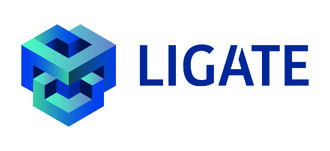
LIgand Generator and portable drug Discovery platform AT Exascale
2021–2024
Project ID: 956137 (H2020-JTI-EuroHPC-2019-1, EuroHPC-IA)
The project aims to integrate and co-design best-in-class European open-source components together with proprietary IPs to keep worldwide leadership on Computer-Aided Drug Design (CADD) solutions exploiting today’s high-end supercomputers and tomorrow’s Exascale resources, fostering European competitiveness in this field. The proposed LIGATE solution, in a fully integrated workflow, enables to deliver the result of a drug design campaign with the highest speed and accuracy; further implementation of auto-tuning the parameters of the solutions to meet the time and resource constraints.

dEsign enVironmEnt foR Extreme-Scale big data analytics on heterogeneous platforms
2020–2024
Project ID: 957269 (H2020-ICT-2018-20 / H2020-ICT-2020-1)
The project is developing a holistic approach for co-designing computation and communication in the high-tech and especially secure system for HPDA. This will be achieved by simplifying the programmability of heterogeneous and distributed architectures through a “data-driven” design approach, using hardware-accelerated AI, and the efficient monitoring of the execution with a unified hardware-software paradigm. The project will validate its approach by applying it in real-life business scenarios such as a weather analysis-based prediction model, an application for air-quality monitoring, and a smart city traffic modelling framework.

Novel Spin-Based Building Blocks for Advanced TeraHertz Applications
2020–2024
Project ID: 863155 (H2020-FETOPEN-2018-2020, RIA)
The project aims to research and develop a revolutionary approach to TeraHertz (THz) technology for generating and detecting THz radiation, initiating the new field of spin-based TeraHertz technology. The project aims to provide a platform of room-temperature innovative spin-based THz building blocks arising from novel combinations of magnetism and optics. The project will provide cutting-edge solutions to solve bottleneck scientific issues in the THz field motivated by clear needs in judiciously chosen target applications.

Supercomputing knowledge partnership
2020–2023
Project ID: 20-203-075975 (KA203-6E6A1FFC)
The mission of this project is to use a methodical approach to fill gaps in current university courses and increase awareness of HPC for future professionals in science, technology, engineering, and mathematics.

PRACE-6IP – Partnership for Advanced Computing in Europe, 6th Implementation Phase
2019–2022
Project ID: 823767 (H2020 INFRAEDI-2018-2020)
The project’s objective was to build on the previous successful PRACE projects, the task of which was to implement the European HPC infrastructure and to continue to develop supercomputing cooperation to strengthen the competitiveness of European science, research, and industry. Unlike the previous ones, the sixth project in a row to support the pan-European PRACE research infrastructure and its users was focused on identifying and developing new applications with significant potential to exploit the capacity of exascale supercomputers.

Open European Quantum Key Distribution Testbed
2019–2023
Project ID: 857156 (H2020-SU-ICT-2018-2020)
The project aims to establish a testbed for a highly secure network using the principles of quantum mechanics for key distribution. It has been the most extensive implementation of QKD (Quantum Key Distribution) in Europe. The role of IT4Innovations lies primarily in three areas. The first is a real use case of HPC via QKD between IT4Innovations and PSNC (Poznan). The second is participation in the development and implementation of key management. The third is a simulation of the QKD use cases of all partners in the project and the improvement of an open/source QKD simulator, which is being developed as an open source. The computational resources of IT4Innovations are used for the simulations.

2019–2021
Large-scale Execution for Industry & Society
Identifikátor projektu: 825532 (H2020-ICT-2018-2020)
The project's goal is to create an advanced engineering platform using modern technologies such as high-performance computing, big data, and cloud services. The benefits of the LEXIS project will be demonstrated by validating the platform in three use cases suitable for industrial sectors such as aeronautics, weather and climate, and earthquake and tsunami.

2018–2021
Exascale Quantifications of Uncertainties for Technology and Science Simulation
Identifikátor projektu: 800898 (H2020-FETHPC-2016-2017)
The three-year-long project ExaQUte aims to develop new methods for solving complex engineering problems using computational simulations on exascale systems. Within the project, new computational methods and software tools for solving aerodynamic simulations to optimize geometrically complex structures will be developed. The work of IT4Innovations in the project involves collaborating in deploying Hyperloom and COMPss tools on high-performance computing systems, as well as their configuration and optimization. IT4Innovations will also be involved in testing robust algorithms for shape optimization of structures under wind loads.

Performance Optimisation and Productivity 2
2018–2022
Project ID: 824080 (H2020-INFRAEDI-2018-1)
The POP2 Centre of Excellence built on the Performance Optimisation and Productivity 1 (POP1) project and extended its activities. The main aim of POP2 was to assist with the analysis of parallel applications, identify erroneous parts of codes, and make recommendations of optimisation methods, resulting in increased performance and better scalability of a given application.

2018–2020
Project ID: 21820033
Superheroes 4 Science project plans to introduce the young generations to High-performance computing (HPC), a critical field of technology that utilises supercomputers to solve complex problems and perform computationally intensive tasks. The project aims to create various interactive educational materials on HPC and its two related emerging fields: Artificial Intelligence and Quantum Computing. The project is co-financed by the Governments of Czechia, Hungary, Poland and Slovakia through Visegrad Grants from International Visegrad Fund. The mission of the fund is to advance ideas for sustainable regional cooperation in Central Europe.
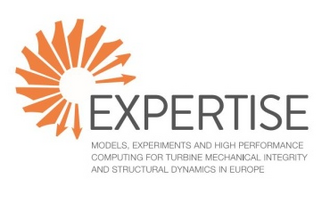
2017–2021
EXperiments and high PERformance computing for Turbine mechanical Integrity and Structural dynamics in Europe
Project ID: (H2020-MSCA-ITN-2016 call)
The objective of this project is to educate researchers able to participate in interdisciplinary cooperation in the areas of supercomputing and mechanics. The colaboration between industrial partners and research organizations will speed up development of the key technologies in turbomachinery and their rapid commissioning in practice. The project is supported by Marie Skłodowska-Curie Innovative Training Networks grant within Horizon 2020.
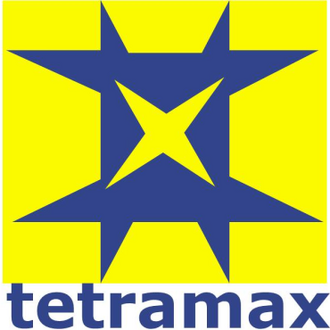
2017–2021
Technology transfer via multinational application experiments
Project ID: 761349 (H2020-ICT-2016-2 call)
The objective of this project was to implement the European "Smart Anything Everywhere" initiative in the field of Customized Low Energy Computing for cyber-physical systems and the Internet of Things. The essential purpose of this initiative is to accelerate innovations in European industry. The initiative connects technical and application know-how, which helps small and medium-sized enterprises adopt advanced digital technologies more effectively and efficiently.

2017–2021
Cloudification of Production Engineering for Predictive Digital Manufacturing
Project ID: 768892 (H2020-FOF-2017 call)
The project's mission was to contribute to efficient use of high performance computing by European small and medium-sized production companies and thus increase their competitiveness. This project aims at the optimization of production processes and productivity of companies using HPC-based modelling and simulation, as well as cloud services.

